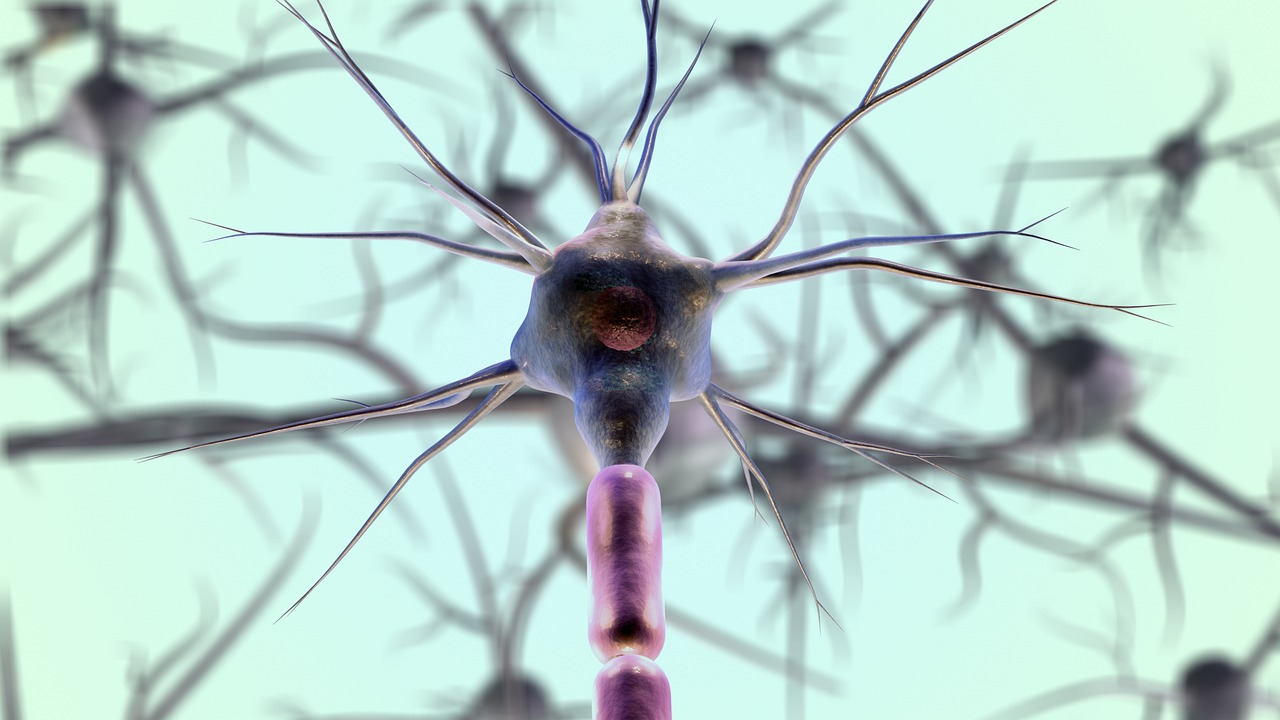
The nervous system is a highly intricate and sophisticated network that plays a pivotal role in regulating bodily functions, processing sensory information, and coordinating responses. Serving as the body’s communication system, it enables us to react to our environment, maintain homeostasis, and engage with the world around us. This article explores the complexities of the nervous system, common neurological disorders, their causes, dietary recommendations, effective lifestyle changes, and additional factors that influence nervous system health. Understanding the nervous system, its functions, and potential diseases will give us insights for better health.
How the Nervous System Works
The nervous system is primarily divided into two major components: the central nervous system (CNS) and the peripheral nervous system (PNS).
Central Nervous System (CNS)
The CNS includes the brain and spinal cord, functioning as the command center for processing information. The brain itself is one of the most complex organs, consisting of approximately 86 billion neurons that communicate through trillions of synapses.
The Brain
The brain is responsible for cognitive functions, emotional regulation, memory, and sensory processing. It consists of various regions, each with specialized roles. The cerebral cortex handles higher-level thought processes, while the limbic system is crucial for emotional responses and memory formation. The cerebellum coordinates movement and balance, and the brainstem regulates vital functions such as heart rate and breathing.
The Spinal Cord
The spinal cord acts as the main pathway for transmitting signals between the brain and the body. It relays sensory information to the brain and sends motor commands to muscles. The spinal cord also coordinates reflex actions, allowing for quick responses to stimuli without needing to engage the brain.
Peripheral Nervous System (PNS)
The PNS connects the CNS to limbs and organs, facilitating communication throughout the body. It is divided into the somatic nervous system and the autonomic nervous system.
Somatic Nervous System
This system is responsible for voluntary movements and transmits sensory information from the body to the CNS. It controls skeletal muscles and enables activities like walking and writing.
Autonomic Nervous System (ANS)
The ANS regulates involuntary bodily functions, such as heart rate, digestion, and respiratory rate. It is further divided into the sympathetic and parasympathetic nervous systems, which prepare the body for fight-or-flight responses and rest-and-digest states, respectively.
Common Nervous System Diseases
Numerous diseases can affect the nervous system, leading to significant health consequences. Here are some prevalent conditions:
Alzheimer’s Disease
Alzheimer’s disease is a progressive neurological disorder characterized by cognitive decline and memory loss. The accumulation of amyloid plaques and tau tangles in the brain results in neuron damage and brain atrophy. Early symptoms may include forgetfulness, confusion, and difficulty concentrating, which worsen over time. Risk factors include age, genetics, and lifestyle factors such as diet, exercise, and social engagement.
Parkinson’s Disease
Parkinson’s disease is a degenerative disorder affecting movement control due to the loss of dopamine-producing neurons. Symptoms include tremors, stiffness, and difficulties with balance and coordination. Although the exact cause remains unclear, genetic factors and environmental influences (such as exposure to pesticides) may play significant roles.
Multiple Sclerosis (MS)
MS is an autoimmune disease that attacks the myelin sheath—the protective covering of nerve fibers—disrupting communication between the brain and body. Symptoms vary widely and may include fatigue, vision problems, and motor difficulties. The exact cause is unknown, but genetic predisposition and environmental factors, such as viral infections, are thought to contribute.
Epilepsy
Epilepsy is characterized by recurrent seizures caused by abnormal electrical activity in the brain. Seizures can vary in intensity and duration and may be triggered by stress, lack of sleep, or flashing lights. Some cases have a genetic basis, while others result from brain injuries or infections. The impact of epilepsy extends beyond seizures, often affecting quality of life and mental health.
Neuropathy
Neuropathy refers to nerve damage that can occur due to various factors, including diabetes, infections, and exposure to toxins. Symptoms may include numbness, tingling, and pain. Diabetic neuropathy is one of the most common forms, resulting from prolonged high blood sugar levels. Addressing underlying conditions, such as diabetes, is crucial for managing neuropathy.
Amyotrophic Lateral Sclerosis (ALS)
ALS is a progressive neurodegenerative disease that affects motor neurons, leading to muscle weakness, paralysis, and respiratory failure. The exact cause of ALS remains largely unknown, but genetic factors and environmental exposures are being researched. As the disease progresses, patients may lose the ability to speak, eat, and eventually breathe.
Huntington’s Disease
Huntington’s disease is a genetic disorder characterized by the progressive degeneration of nerve cells in the brain. Symptoms include movement disorders, cognitive decline, and psychiatric issues. It typically manifests in mid-adulthood and is caused by a mutation in the huntingtin gene. Genetic counseling and testing are recommended for individuals with a family history of the disease.
Causes of Nervous System Diseases
Nervous system diseases arise from a complex interplay of genetic, environmental, and lifestyle factors:
Genetics
Certain neurological disorders have hereditary components, increasing risk among family members. For instance, mutations in specific genes can predispose individuals to conditions like Alzheimer’s and Huntington’s disease. Genetic testing can help identify risks and inform preventive strategies.
Environmental Factors
Exposure to neurotoxins, such as heavy metals, pesticides, and certain chemicals, can adversely affect the nervous system. Research has linked these substances to an increased risk of conditions like Parkinson’s disease. Protecting oneself from environmental toxins involves advocacy for cleaner living conditions and awareness of personal exposures.
Infections
Viral or bacterial infections, such as meningitis or Lyme disease, can lead to inflammation and damage to the nervous system, resulting in lasting effects. Vaccinations and preventive measures against infections are crucial for reducing risks associated with these diseases.
Lifestyle Choices
Poor dietary habits, lack of physical activity, smoking, and substance abuse can contribute to the deterioration of nervous system health. Chronic stress and anxiety can exacerbate symptoms of existing conditions. Adopting a healthy lifestyle through balanced nutrition and regular exercise can mitigate these risks.

Nutrition for Nervous System Health
A balanced diet rich in specific nutrients is crucial for maintaining a healthy nervous system. Here are key dietary recommendations:
Omega-3 Fatty Acids
Essential for brain health, omega-3 fatty acids promote cognitive function and reduce inflammation. Research has shown that diets rich in omega-3s are associated with lower risks of neurodegenerative diseases. Incorporate sources like flaxseeds, walnuts, chia seeds, and algae-based supplements into your meals. Aim for at least two servings of fatty fish per week, such as salmon or sardines, for optimal omega-3 intake.
Antioxidant-Rich Foods
Antioxidants help combat oxidative stress that can damage neurons. Include plenty of colorful fruits and vegetables in your diet, such as blueberries, strawberries, spinach, and bell peppers. These foods are rich in vitamins and phytonutrients that support brain health. Aim for a variety of colors on your plate to maximize antioxidant intake.
Whole Grains
Opt for gluten-free whole grains like quinoa, brown rice, and oats, which provide essential nutrients and energy for brain function. Whole grains contain B vitamins that support neurotransmitter production and cognitive health. Including fiber-rich grains in your diet can also help stabilize blood sugar levels, which is important for maintaining energy and focus.
Lean Proteins
Plant-based proteins, such as legumes, lentils, and nuts, are excellent choices to support neurotransmitter production. Incorporating protein-rich foods helps maintain stable energy levels and cognitive function throughout the day. Ensure a variety of protein sources in your diet, including tofu and tempeh for vegetarians and vegans.
Hydration
Staying hydrated is essential for optimal brain function. Aim to drink plenty of water throughout the day, as even mild dehydration can impair cognitive performance and mood. Herbal teas and water-rich fruits and vegetables can also contribute to hydration. Monitor your urine color; light yellow typically indicates good hydration.
Micronutrients for Brain Health
Certain vitamins and minerals play crucial roles in brain health:
Vitamin D
Supports neuronal health and may help protect against neurodegenerative diseases. Sun exposure is a natural source, but supplementation may be necessary for those with limited sunlight exposure.
Vitamin E
Acts as an antioxidant, protecting brain cells from oxidative stress. Nuts, seeds, and leafy greens are good sources.
Zinc
Important for nerve signaling and cognitive function, with deficiencies linked to mood disorders. Oyster, chickpeas, and pumpkin seeds are rich in zinc.

Physical and Mental Activities for Nervous System Support
Incorporating regular physical and mental activities into your routine can significantly enhance nervous system health:
Physical Exercise
Regular exercise improves blood flow to the brain, promotes neurogenesis (the formation of new neurons), and releases endorphins that boost mood. Aim for a balanced routine that includes aerobic exercises (like walking, cycling, or swimming) and strength training. Consistent physical activity has been associated with improved cognitive function and reduced risk of neurodegenerative diseases.
Mindfulness and Meditation
Practicing mindfulness and meditation can reduce stress and enhance mental clarity. Techniques such as deep breathing, yoga, or guided meditation can help regulate emotions and improve focus, supporting overall brain health. Incorporating mindfulness into daily life can lead to long-term mental health benefits.
Cognitive Challenges
Engaging in cognitive challenges, such as puzzles, reading, or learning a new skill, promotes neuroplasticity—the brain’s ability to adapt and reorganize. Activities like crossword puzzles, sudoku, and memory games stimulate the brain and help maintain cognitive function as you age.
Social Engagement
Maintaining social connections is crucial for mental well-being and cognitive health. Regular interactions with friends and family can provide emotional support and reduce feelings of isolation. Consider participating in community groups or activities that align with your interests to foster social connections.
Stress Management Techniques
Chronic stress can have detrimental effects on the nervous system, leading to anxiety, depression, and cognitive decline. Implementing effective stress management strategies is vital:
Deep Breathing Exercises
Practicing deep breathing techniques can help activate the body’s relaxation response, reducing stress levels. Try inhaling deeply through your nose for a count of four, holding the breath for four counts, and exhaling slowly through your mouth for six counts.
Physical Activity
Exercise is a powerful stress reliever, as it promotes the release of endorphins and helps reduce tension. Aim for at least 30 minutes of moderate exercise most days of the week. Choose activities you enjoy to ensure consistency.
Mindfulness and Meditation
Mindfulness practices help anchor your thoughts in the present moment, reducing anxiety and enhancing overall well-being. Set aside time each day for mindfulness exercises or meditation. Even a few minutes can make a difference.
Time Management
Effective time management can alleviate stress by reducing feelings of being overwhelmed. Prioritize tasks, set realistic goals, and break larger projects into manageable steps. Consider using planners or digital tools to stay organized.

The Role of Sleep in Nervous System Health
Sleep is essential for maintaining optimal brain function and overall health. It plays a crucial role in memory consolidation, emotional regulation, and neural repair.
Importance of Sleep
During sleep, the brain processes and consolidates information from the day. Deep sleep stages are vital for memory retention and learning, while REM sleep is associated with emotional processing and creativity. Chronic sleep deprivation can lead to cognitive decline, impaired decision-making, and increased stress levels.
Tips for Improving Sleep Quality
Create a Sleep-Friendly Environment
Make your bedroom conducive to sleep by keeping it dark, cool, and quiet. Consider using blackout curtains, earplugs, or white noise machines if necessary.
Establish a Bedtime Routine
Engage in calming activities before bed, such as reading or gentle stretching, to signal to your body that it’s time to wind down.
Limit Screen Time Before Bed
Reduce exposure to blue light from screens in the hour leading up to sleep, as this can interfere with melatonin production.
Maintain a Consistent Sleep Schedule
Go to bed and wake up at the same time each day, even on weekends, to regulate your body’s internal clock.
Hormonal Balance and the Nervous System
Hormonal fluctuations can significantly influence nervous system function, particularly stress hormones like cortisol.
Stress Hormones
Chronic stress leads to prolonged elevation of cortisol, which can impair cognitive function and emotional health. High cortisol levels are linked to anxiety, depression, and memory issues. Understanding the impact of stress on the body is essential for developing effective coping strategies.
Hormonal Health Tips
To support hormonal balance
Adopt a Balanced Diet
Focus on whole, nutrient-dense foods to support hormone production and regulation.
Incorporate Adaptogens
Consider adaptogens like ashwagandha, rhodiola, or holy basil, which may help reduce stress and balance hormones.
Practice Stress Management
Utilize stress-reduction techniques such as yoga, meditation, and regular exercise to support hormonal health.

Aging and the Nervous System
Aging naturally affects the nervous system, leading to cognitive changes and increased vulnerability to neurodegenerative diseases.
Cognitive Decline
With age, individuals may experience memory issues, slower processing speeds, and challenges in multitasking. While some cognitive decline is a normal part of aging, maintaining an active lifestyle can help mitigate these effects. Engaging in regular mental and physical activities is essential for cognitive health.
Activities to Support Brain Aging
Encourage activities that promote brain health as you age:
Social Engagement
Stay socially active to combat isolation and cognitive decline. Join clubs, attend community events, or volunteer to foster connections.
Physical Exercise
Engage in regular aerobic and strength-training exercises to promote brain health. Consider activities like walking, swimming, or dancing that are enjoyable and accessible.
Lifelong Learning
Challenge your brain through learning new skills, taking courses, or exploring hobbies. This mental stimulation supports neuroplasticity and cognitive health.
Conclusion
Understanding the nervous system’s function, recognizing the signs of disease, and making informed dietary and lifestyle choices are crucial for promoting overall health. By prioritizing nutrition, engaging in physical and mental activities, managing stress, ensuring quality sleep, and being proactive about health management, you can support a healthier, more resilient nervous system for years to come.
Subscribe to our newsletter and follow us on social media to let us know how you’re working towards a balanced life!
Oral Health: Causes, Prevention, and the Role of Nutrition
Oral health is often a neglected part of our...
Food Allergies: Causes, Symptoms, and Management
Food allergies and sensitivities are...
Unintentional Weight Loss
Unintentional weight loss can be distressing,...
The Negative Impacts of Plastic Usage on Health and the Environment
Plastic has revolutionized modern life,...
The Impact of Social Media on Body Image: How It Affects Women’s Health
Social media has transformed how we connect,...
Why Women Need Nutrition Counseling Beyond Weight Loss
Women face unique challenges when it comes to...
The Benefits of Journaling for Mental Health
Journaling has gained recognition as a powerful...
Minimalism and Health: The Effects of a Minimalist Lifestyle on Mental and Physical Well-being
Living in a world where consumerism and constant...
Physical activity: Cardio, Strength Training, Yoga, and Pilates
Engagement in regular physical activity is...










